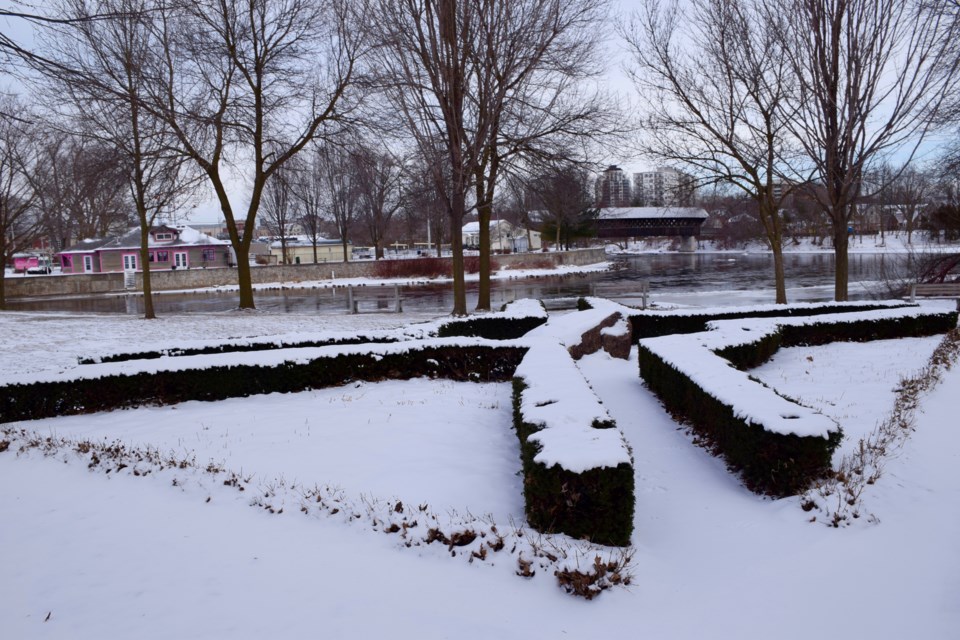Marianne’s Park, at the confluence of the Speed and Eramosa rivers in the heart of Guelph, is under snow right now. But the rivers are flowing high and fast along its northern edge.
Next week, on Wednesday, Mar. 22, three organizations will come together and take a stand on the issue of water protection in Guelph and across Canada. The event is part of World Water Day. A crowd will gather in the park, 1765 Gordon St. (across the river from The Boathouse) at 4 p.m.
Some words will be said at the gathering, a group photograph will be taken, and participants will be asked to sign a message that will be delivered to Guelph MP Lloyd Longfield. The message is a demand for stronger federal water protection measures.
Event organizer Karen Rathwell of Wellington Water Watchers said the previous federal government under Stephen Harper brought in legislation that removed protection for a great many of the country’s lakes and rivers.
In 2012, the Harper administration replaced the Navigable Water Protection Act with the Navigation Protection Act, ostensibly to update and simplify regulations related to transportation on inland waterways. Groups like the Council of Canada’s see the changes as a removal of environmental protection for most of the country’s water.
The Council of Canadians, Wellington Water Watchers, and the Guelph/Wellington Coalition for Social Justice are hosting the World Water Day gathering.
“It’s a photo snap and a quick message signing to send to Lloyd Longfield, to say we need the government to step up and protect those 99 per cent of our rivers and lakes that are now unprotected,” Rathwell said, adding that water is essential for all life and must be protected.
She said the legislative changes made it easier for infrastructure like pipelines and electrical wiring to go under or over lakes and rivers in the country, putting our water at risk.
Rathwell said Marianne’s Park was chosen as the site for the celebration/action because it is a very important site in Guelph, both from the perspective of the watercourses that meet there, and because of the park’s meaning in the community.
The park commemorates Marianne Goulden, who was murdered in an act of domestic violence. The space stands as a permanent reminder of the problem of violence against women in our community. It is the site of the annual Take Back the Night event.
The Speed and Eramosa rivers, Rathwell said, are “the roots of our city.” The confluence of the streams was a major factor in determining where Guelph was established, she added.
“It’s a beautiful watershed and a beautiful water system, and we really need to step up to protect our fresh water in Ontario,” she said.
Historically, the rivers and streams within the Grand River watershed were used by the region’s Indigenous people are transportation routes. The territory around present day Guelph was the traditional hunting grounds of the Neutral and Huron people, collectively known as the Attawandaron.
